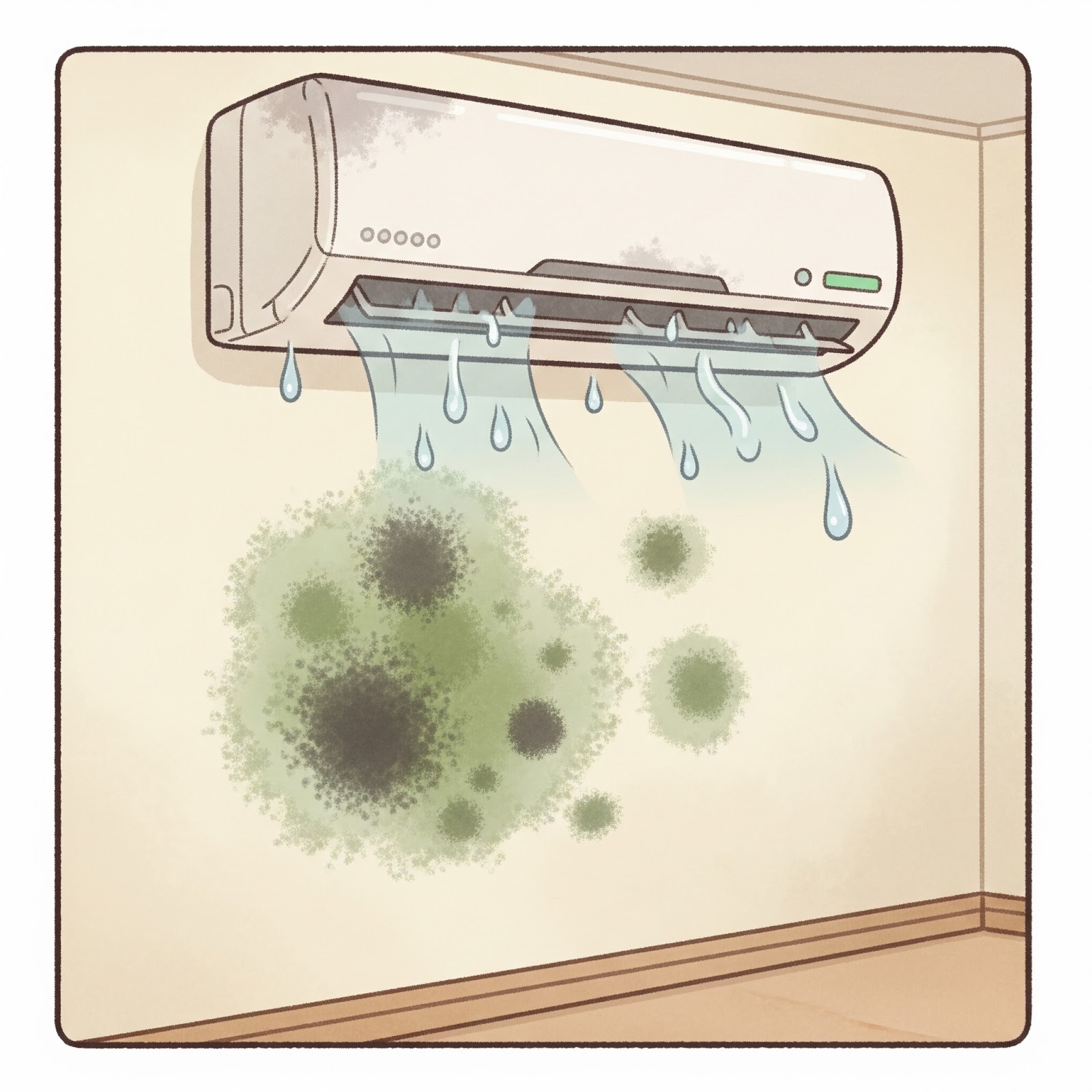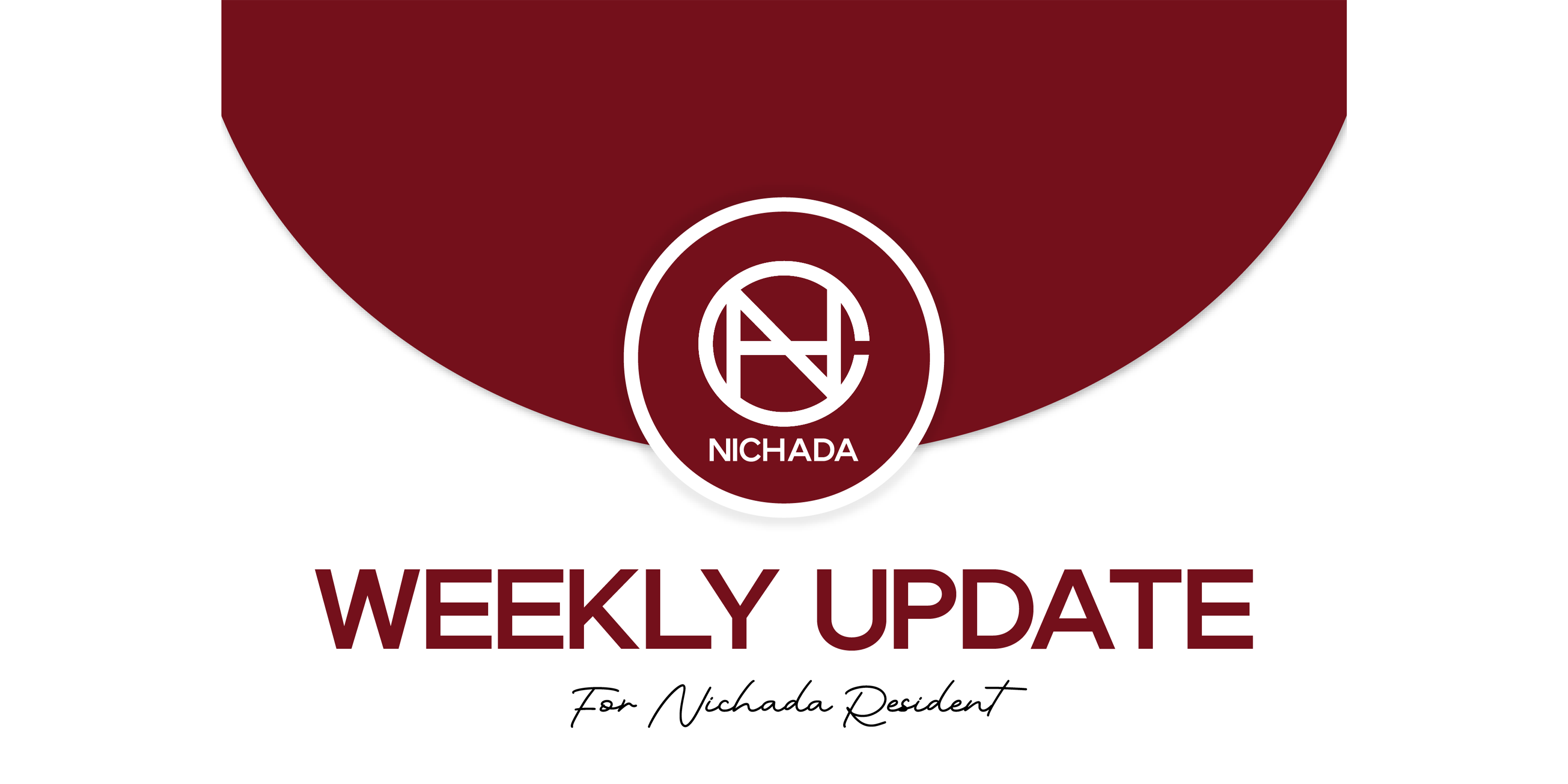Dear Resident
Important Announcement
⚠️ The building shown in this image is not affiliated with Nichada Group of Companies in any way. ⚠️
Please be informed that this is not an official contact channel of Nichada Group of Companies
If you’re interested in renting or buying a home with Nichada Group of Companies,
you can contact us at:
LINE ID: @nichadaofficial ✅
Tel: 02-001-0202 ext. 1
Our staff is ready to assist and guide you every step of the way

-----------------------------------------------------------------------------------------------------------------------------------------------------------------------------
Important Reminder: Proper Use of AC & Mold Prevention During Rainy Season
We’ve been informed that some residents have advised setting their AC to 18°C all day, even when no one is home, in an effort to prevent mold. We’d like to clarify why this is not an effective or recommended practice, especially during Thailand’s current rainy season, when humidity is high and the risk of moisture-related issues increases.
Why This Practice is a Problem — Especially Now
With outdoor temperatures at 35–38°C and constant rain, our environment is already very humid. Running the AC all day at 18°C causes the unit to work non-stop, which:
- Places severe strain on the machine and often leads to breakdowns
- Encourages condensation on cold surfaces, which can actually increase the risk of mold
- Does not reduce humidity effectively when used this way
In fact, turning your home into a freezer can backfire — when warm, moist air hits cold surfaces (like walls, floors, or furniture), moisture condenses, creating the ideal conditions for mold to grow.

Mold Isn’t About Temperature — It’s About Moisture
Mold thrives when humidity is above 60%, which is very common during the rainy season. Aside from condensation from AC misuse, other major sources of moisture include:
- Leaking roofs or windows due to heavy rain
- Lack of airflow in tightly sealed rooms
- Poor drainage or standing water around the house
What You Should Do Instead
- While at home, keep the AC at 25–27°C — cool, comfortable, and effective in reducing moisture
- Always turn the AC off when leaving the house — this protects the unit and avoids waste
- Keep an eye out for any leaks or water buildup during this season and report them immediately
- Ventilate rooms when possible to promote air circulation
- Ensure AC filters are cleaned regularly to avoid mold inside the units which our service agreement provides this service every 4 months
- utilize dehumidifier to decrease the humidity level indoors

Summary:
In Thailand’s rainy season, high humidity and rainwater leaks are the real causes of mold — not warm air. Setting AC to 18°C all day can make things worse by creating condensation, wasting energy, and damaging the unit. The best protection is moderate AC use while home, turning it off when away, and keeping rooms dry and well-ventilated.
Thank you for helping us protect both your home and our shared community environment.
-----------------------------------------------------------------------------------------------------------------------------------------------------------------------------
Age and Licensing Requirements for Motorcycles
In light of recent incidents involving reckless and disruptive behavior by certain motorcyclists within Nichada, we would like to take this opportunity to remind residents of the legal age and licensing requirements for teenagers operating motorcycles.
- Small Motorcycles (≤110cc or ≤125cc)
- Common for scooters and small commuter bikes.
- Standard motorcycle license covers these.
- Minimum age: 15 years for a temporary license (may be limited to small engine bikes in some provinces).
- At 18 years, you can get a full license covering all small motorcycles.
- Common for scooters and small commuter bikes.

- Medium Motorcycles (125cc – 400cc)
- Requires a standard motorcycle license (same as above).
- Minimum age: 18 years.
- Requires a standard motorcycle license (same as above).

- Big Bikes (>400cc)
- Requires a “Big Bike” endorsement or a separate license.
- Riders must be at least 18 years old.
- Some training schools and testing centers specifically prepare riders for big bike licensing.
- The practical test may be more rigorous (e.g., handling, braking, U-turns).
- Requires a “Big Bike” endorsement or a separate license.

All illegal driving within Nichada Thani will be reported to the authorities. Please help keep our neighborhoods safe by abiding by all safety regulations.
-----------------------------------------------------------------------------------------------------------------------------------------------------------------------------
Measures to Prevent Insects and Animals from Entering Homes
During Thailand’s rainy season, the combination of increased moisture, flooding, and dense vegetation creates ideal conditions for insects and dangerous animals to thrive. Below are some preventive measures you can take to protect your home:
1. Seal gaps and cracks: Wild animals often enter homes through small openings such as under doors, windows, drainage pipes, and walls. If any gaps are found, they should be properly sealed using appropriate materials.

2. Clean up the area around the house: Keeping the area around the house clean is important, especially during the rainy season. Trim grass, collect fallen leaves, and remove debris to prevent wild animals from making it their habitat.

3. Maintain cleanliness inside the house: A clean home reduces the chances of wild animals coming in to seek shelter or food. Eliminate food scraps and keep the kitchen and dining areas tidy. Garbage bins should be tightly sealed to reduce attractions for pests such as rats and cockroaches.

4. Install insect screens: Installing insect screens on windows and doors helps prevent small pests from entering the home. Choose durable screens that can withstand frequent use and weather conditions.

5. Inspect and repair the roof: A leaking or damaged roof can serve as an entry point for wild animals, especially reptiles. Regularly inspect and repair the roof, particularly before and after the rainy season.

6.Check for standing water around the house: Accumulated water can become a breeding ground for mosquitoes and other aquatic creatures. Regularly drain any standing water and clear away leaves and debris to prevent mosquito breeding and other pest infestations.

